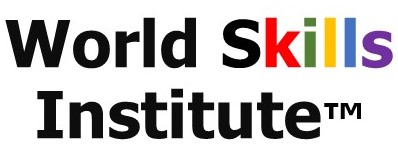
Learning Objectives
- Identify the characteristics of IT project management and the roles involved in designing, developing, and delivering IT projects
- Describe the necessary management and control of complexity that is a part of IT projects
- Understand how to align the needs of an organization’s business; the business need; and the usefulness of IT technology, tools, and applications
- Describe how to use different project life cycles to support an IT project
- Understand the processes utilized to improve the IT project’s chances of success
- Review the basic tools, techniques, and standard operational activities that can improve an IT project’s successful outcomes
- Recognize the importance of adequate planning required to ensure a project has the necessary information, tools, techniques, and facilities it needs to be successful
- Describe the importance of adequate requirements management to the success of an IT project
Course Topics
IT Projects Overview
- Exercise: Where Are You Now?
- What is IT Project Management?
- Sources of IT Projects
- Types of IT Projects
- IT Project Characteristics
- Major IT Project Activities
- Delivery Methods
- Primary Team Roles and Responsibilities
Managing IT Projects
- Project Portfolio Management (PPM)
- Exercise: Your Worst Project
- IT Project Failure
- Why are IT Projects Difficult to Manage?
- Delinquency or Inadequacy of Requirements Management
- Project Considerations for Success
IT Project Lifecycles
- IT Project Lifecycle Phases
- Lifecycles: Dealing with Project Uncertainty
- Lifecycle Model Characteristics
- Predictive Versus Adaptive Lifecycle Models
- Sequential Versus Iterative Lifecycle Models
- Lifecycle Approaches
- Key Factors for Success
IT Project Processes
- What Is a Process?
- Five Basic Tenets of Process Engineering
- Project Process Model
- Supporting Processes
- Team-Building Processes
- Communication Processes
IT Project Initialization
- High-Level Business Purpose
- Organizational Structural Continuum
- Organizational Model for Software Projects
- Project Team Structures
- Understanding the Problem, Requirements, Solution, Deliverables (PRSD) Model
- Defining Project High-Level Constraints
- Business Case and Project Chartering
- Stakeholder Identification and Analysis
Basic Tools and Techniques
- IT Project Estimation Techniques
- Plan, Do, Check, Act (PDCA) Cycle
- U.S. Government Tools and Plans
- Project Management Information System (PMIS)
- IT Project Verification and Validation
- Your Thoughts?
IT Project Planning: Part I
- The Importance of Project Planning
- Developing the IT Project Management Plan
- Scope Management Planning
- Time/Schedule Management Planning
- Critical Path Scheduling
- Schedule Compression Techniques
- Resource Estimates and Assignments
- Cost Management
- Quality Management
- Team Management
IT Project Planning: Part II
- Communications Management
- Risk Management
- Configuration and Change Management
- Procurement/Acquisition Management
- Stakeholder Expectation Management
- Tailoring the IT Project Management Plan
- IT Project Baseline Management
- IT Project Plan Maintenance and Updating
IT Project Requirements Management
- IT Project Requirements Management
- Performing Gap Analysis
- Type of Requirements
- Business Analysis Requirements Management: BABOK® Guide Approach
- Requirements Planning
- Project Elicitation Techniques
- Requirements Analysis
- Specifying and Packaging Requirements
- Specifying and Packaging Requirements
- Solution Assessment and Validation (SA&V)
- Solution Assessment and Validation (SA&V)
- Requirements Communication
- Determine Design Constraints
- Managing Requirements Changes
- What Now?
February 1 – February 3, 2023 | 8:00 AM – 4:00 PM EST | Internet, EST | Virtual | $2,499
March 27 – March 29, 2023 | 9:00 AM – 5:00 PM | Internet, EST | Virtual | $2,4999
May 1 – May 3, 2023 | 9:00 AM – 5:00 PM | Internet, EST | Virtual | $2,499
July 17 – July 19, 2023 | 8:00 AM – 4:00 PM | Washington, DC | Remote | $2,499
